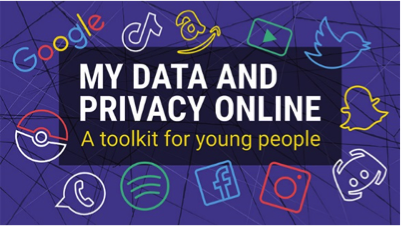 This year has seen significant developments in internet governance, including the Brazilian government’s attempt to create a truly multistakeholder global process in the wake of the Snowden revelations, and the US government’s announcement of its intention to transition domain name functions to the global multistakeholder community. Andrew Puddephatt, executive director of Global Partners Digital, spoke at a seminar last week organised by the LSE Media Policy Project, the International Institute of Communications, and the Internet Society, on upcoming challenges in this area.
This year has seen significant developments in internet governance, including the Brazilian government’s attempt to create a truly multistakeholder global process in the wake of the Snowden revelations, and the US government’s announcement of its intention to transition domain name functions to the global multistakeholder community. Andrew Puddephatt, executive director of Global Partners Digital, spoke at a seminar last week organised by the LSE Media Policy Project, the International Institute of Communications, and the Internet Society, on upcoming challenges in this area.
No single entity governs the totality of the internet. Governance is provided by different institutions operating in different jurisdictions – the main bodies being the international jurisdictional bodies such as ICANN, various engineering groups and the World Wide Web Consortium (like the national bodies which administer the national domains). All are concerned with the efficient working of the system – its functionality – rather than governing the policy environment in the way that regulators govern broadcast media even though many of their decisions have significant public policy implications (domain names are not neutral).
This governance is open to different stakeholders – governments, businesses, engineers, civil society organisations, and it tends to be transparent, about fixing technical problems and finding best practices, rather than making difficult judgments. This is not like traditional intergovernmental decision making that tends to be exclusive, interest-focused, and often secretive (e.g. trade negotiations). However it also lacks the legitimacy of state-based institutions when dealing with more obvious public policy questions.
This creates tensions with the traditional multilateral inter-state processes. Many governments believe that the internet represents a threat to their power and that they must control the information and ideas available online. As a consequence many governments want to introduce state supervision of the internet to replace the current often ad-hoc arrangements.
But it is difficult to see how any international consensus can develop that would lead to an over-arching meta framework for global public policy issues online. Ten years ago, the UN’s International Law Commission noted that the predominant trend in international law is the fragmentation of international law into separate and increasingly autonomous spheres. It concluded that “no homogenous hierarchical meta-system is realistically available” within the international legal order to resolve detailed differences among the separate spheres, that this would have to be left to the realm of practice. And John Ruggie said recently that the notion of an “overarching international legal framework through a single treaty” is no longer plausible in almost any sphere of policy.
In the absence of an over-arching “meta-structure” for the internet, governance will remain scattered throughout a range of

forums, such as the Internet Governance Forum talk shop, a reformed ICANN, processes where governments feel safe such as the cybersecurity conferences, normative discussions at the 2nd Committee of the UNGA, trade negotiations such as the TTIP or TTP, regional standard setting, national policy or laws, etc. There will be many different configurations – regional, bi-lateral, pluri-lateral and many different actors – state based and multi-stakeholder. All of this will require expert knowledge, stamina, consistency, institutional memory, patience and smart diplomacy.
And unfortunately the weakest actors in the field are likely to be democratic governments with their conflicting values and interests, with a turnover of staff and political leadership every two to five years, and poorly funded and equipped public interest groups. The strongest actors will be repressive governments with their single minded agenda and global companies who can throw money and brains at the problem.
So the big challenge over the next two years is to find a way of ensuring the informed engagement of civil society and of democratic governments around a shared agenda dedicated to building and sustaining an internet that supports democracy and human rights. The internet has brought a communications revolution and empowerment as great as any since the printing press. It is too important to all of us to lose.
This post gives the views of the author, and does not represent the position of the LSE Media Policy Project blog, nor of the London School of Economics.





